Adriacom I Business Services & Immigration
Montenegro Awaits - Let's Make it Yours.
Kotor City Guide
On a day trip from Dubrovnik or as a beach holiday destination, Kotor is well worth a visit. This stunning coastal town is more attractive than ever, thanks to its designation as a UNESCO World Heritage Site and careful city planning. Many of the picturesque Baroque Palazzi in Kotor’s Old Town have been carefully restored.
The so-called ‘Pearl of the Adriatic’ offers a laid-back Mediterranean lifestyle and attracts hundreds of thousands of visitors each year. The Forbes Magazine even listed Kotor as the number one Jetset Retirement Destination.
Table of Contents
Toggle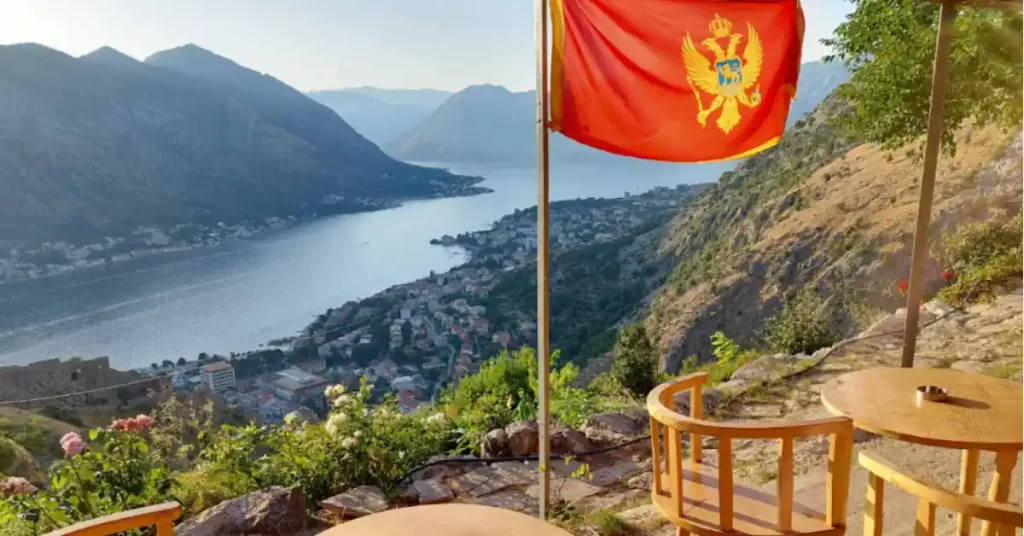
Montenegro Residency
Find out about your Montenegro Residency Options in 2024 and make this beautiful part of the world your new home.
A City Break You Will Love
Escape to the Bay of Kotor, a natural wonder in the heart of Europe, with an intimate luxury stay at one of the best hotels in Kotor. Enjoy your well-deserved holiday in Kotor to discover the hidden treasures of the walled city, quirky old town shops, and genuine local gourmet dining.
With unforgettable panoramic views of unspoiled natural landscapes, stylish beach clubs by day, and a vibrant summer atmosphere at night, Kotor is undoubtedly Montenegro’s most magical city. Meander through the endless maze of cobblestoned streets and immerse yourself in local culture.
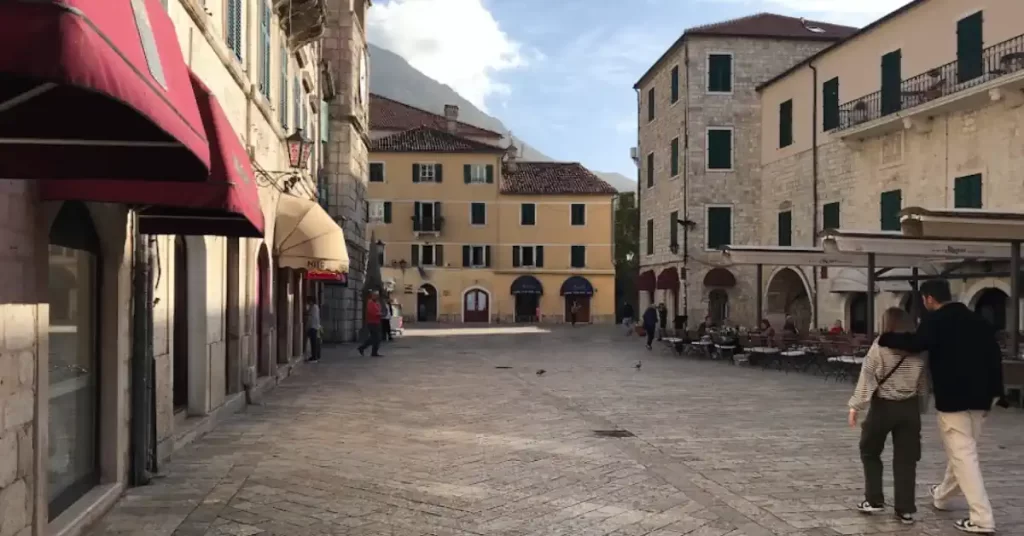
Best Hotels in Kotor
Read our detailed guide unveiling the best hotels in Kotor, from intimate boutique hotels in the old town to luxurious resorts in the bay.
Weather in Kotor
The mild Mediterranean climate of Kotor is reason enough to visit. Summers are warm and long with an average of 240 days of sunshine. The swimming season lasts well into October. Winters in Kotor are mild and cozy, and whatever time of the year you visit, you are bound to have a wonderful time.
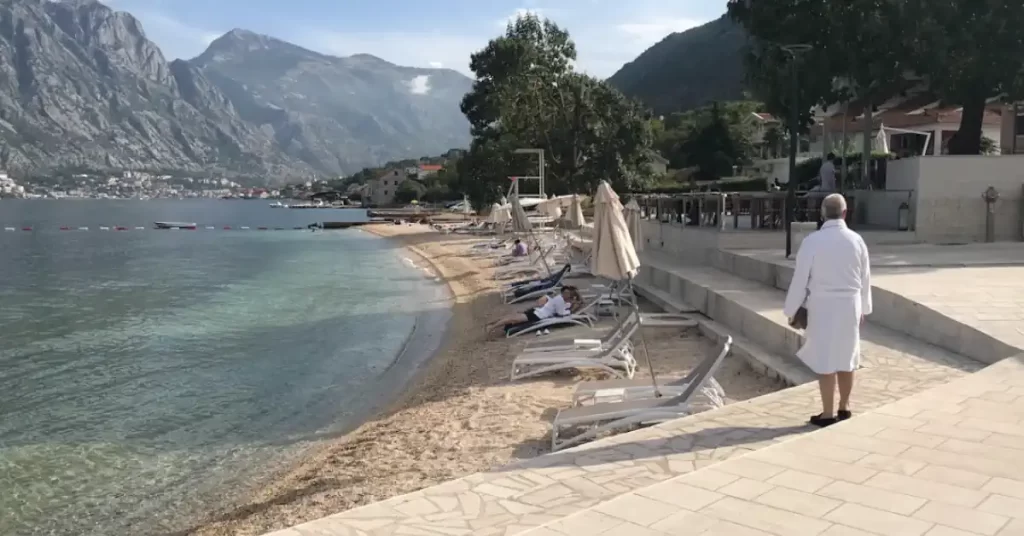
Weather in Kotor
The weather in Kotor changes according to the seasons with hot and dry summers and mild winters with heavy rains and winds.

Kotor Weather in June
Find out more about the weather in Kotor in June. June comes with moderately hot weather, perfect for swimming and other activities.
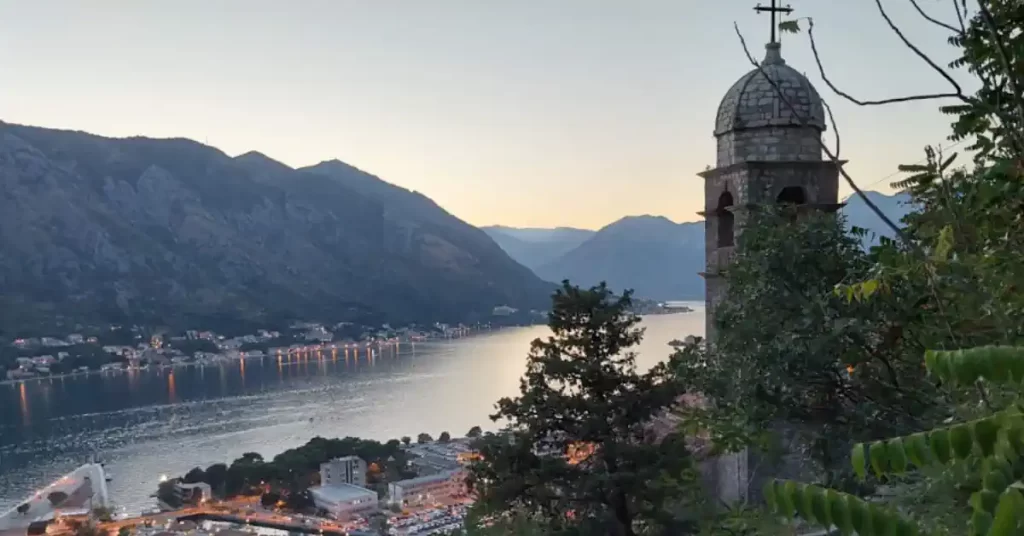
Kotor Weather in October
The month of October is generally a good time of the year to visit Kotor. Find our more about Kotor’s Weather in October.
Kotor’s Neighboring Coastal Villages
Kotor is the epicenter and administrative capital of the inner Bay of Kotor, encompassing the vibrant Old Town known as ‘Stari Grad’, the historic settlements of Dobrota and Muo, the beautiful coastal villages of Prcanj, Stoliv, and Perast that are known for their well-preserved Baroque architecture, and the oldest bay settlement – Risan.
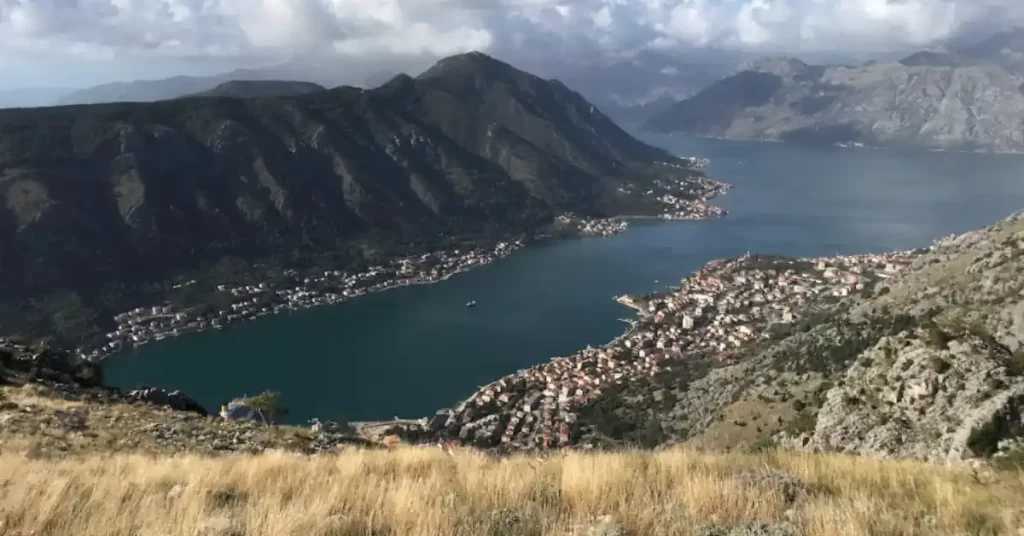
Bay of Kotor
Visit the Bay of Kotor, Europe’s southernmost fjord, for the utmost Mediterranean experience, appealing year-round to tourists and residents.
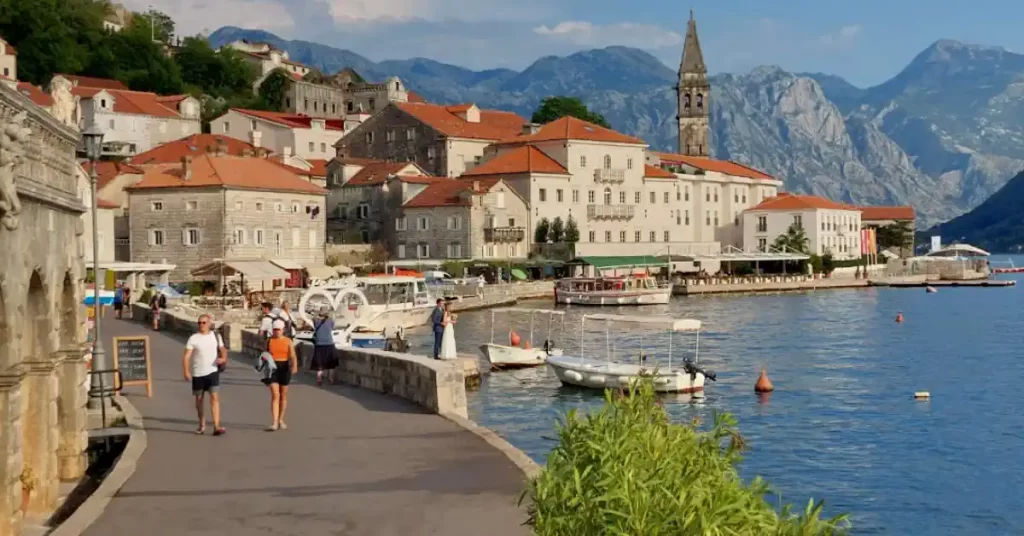
Perast
Perast lies just 12 kilometers north of Kotor along the incredibly picturesque coastal road. Come here for waterfront dining.
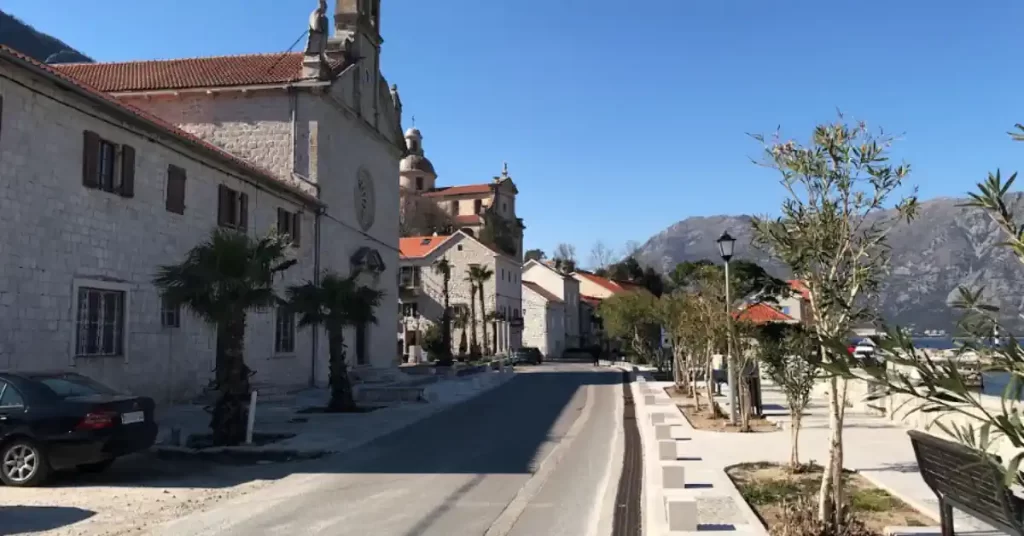
Prcanj
On the other side of Boka Bay, you will find the small coastal town of Prcanj. It has a rich maritime history and beautiful stone architecture.
Things to do in Kotor
Kotor has a transformative year-round appeal with many annual local festivals and live music performances, fashionable restaurants, and an abundance of cultural and natural sights. The Kotor-Dobrota seaside promenade winds past chic beach clubs and sea captains’ homes.
No visit to Kotor is complete without climbing up to Kotor Fortress or at least taking the Kotor Cable Car for incredible views of the Adriatic. Embark on a journey to beautiful islands and hidden beaches or simply relax in one of the serene and peaceful waterfront cafes with a cake or drink.
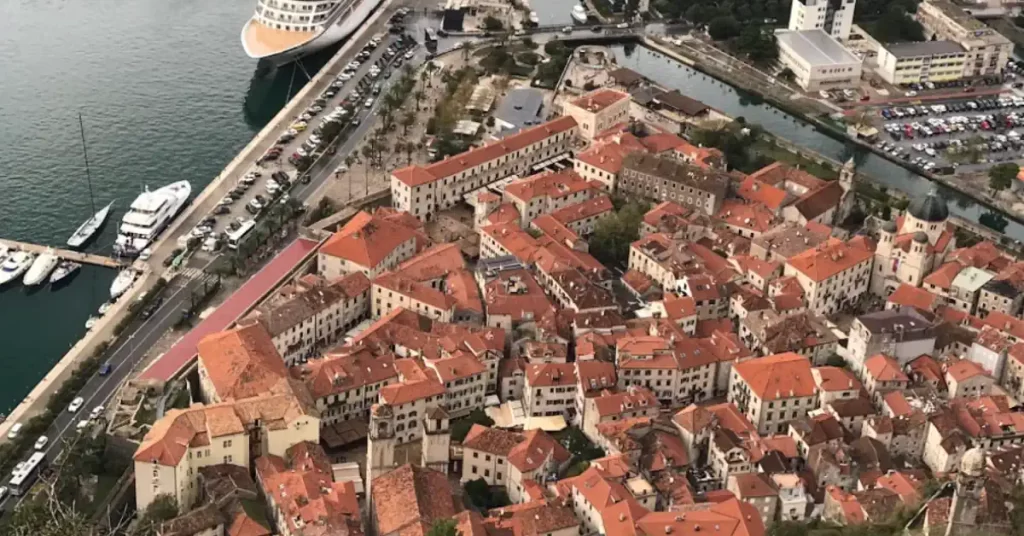
Things to do in Kotor
The list of the best things to do in Kotor includes many family-friendly outdoor activities and cultural highlights like the Kotor Cathedral.
Restaurants in Kotor
Kotor has many fantastic eateries to satisfy your cravings for exquisite and fresh local cuisine. The culinary scene in Kotor is exploding with new restaurants opening literally every week. Fish and shellfish specialties are popular but there is so much more to the local cooking.
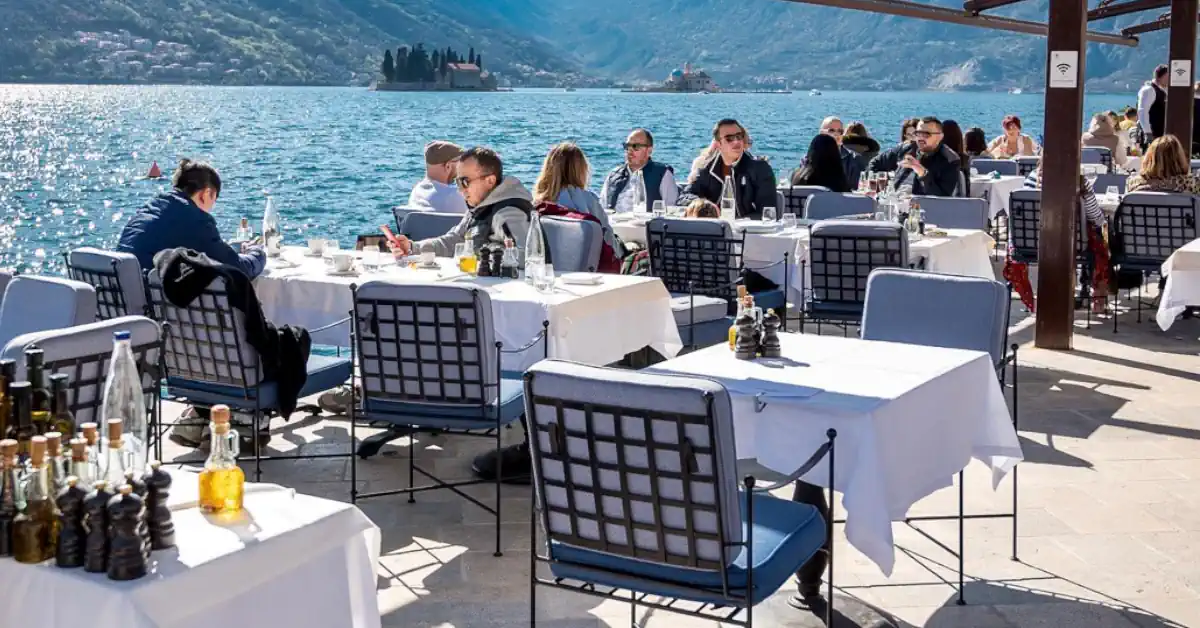
Best Restaurants in Kotor
Keeping abreast of the latest great dinner spot is not easy Check out our selection of the best restaurants in Kotor.
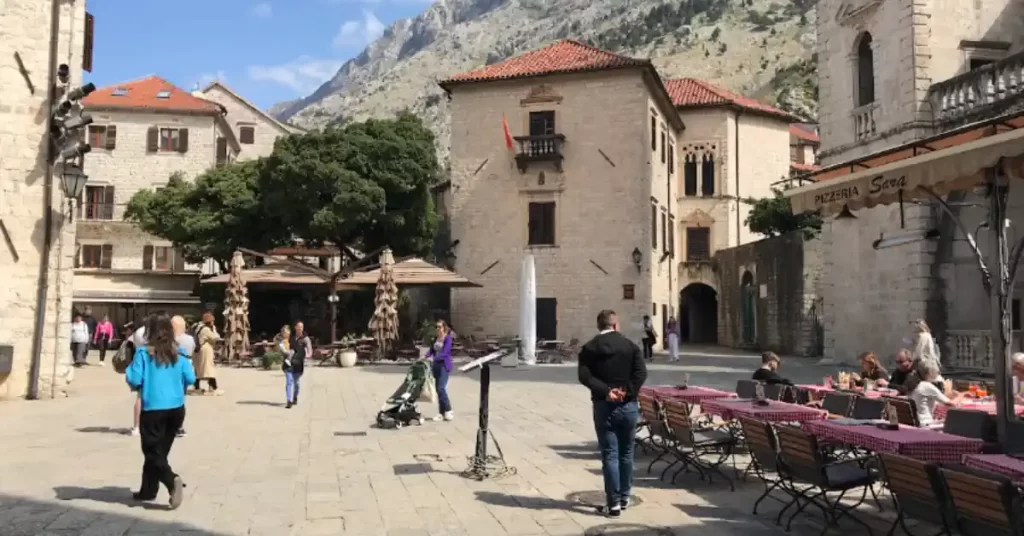
Best Restaurants in Old Town
Find out where the best restaurants in Kotor’s Old Town are and what kind of specialties they serve. Avoid the tourist traps.
Accommodation in Kotor
A city surrounded by two giant mountain massifs of the Dinaric Alps, located at the very end of the marvelous Boka Bay is interesting enough. Add in a lavish history of bloody power struggles between the major Empires of the time, artistic sophistication, and wealthy sailors, and that’s the story of Kotor.
When staying in Kotor, you should consider staying in one of the small and intimate boutique hotels. You can either choose a lodge in the old historical core or go for a quainter hotel along the shores of the bay. Here you can find character-rich, unique hotels such as the Palazzo Sbutega or the Corso Levante Kotor.

Best Hotels in Kotor
Charming boutique lodge or modern resort with top-notch amenities? Here is a hand-picked selection of the best hotels in Kotor.
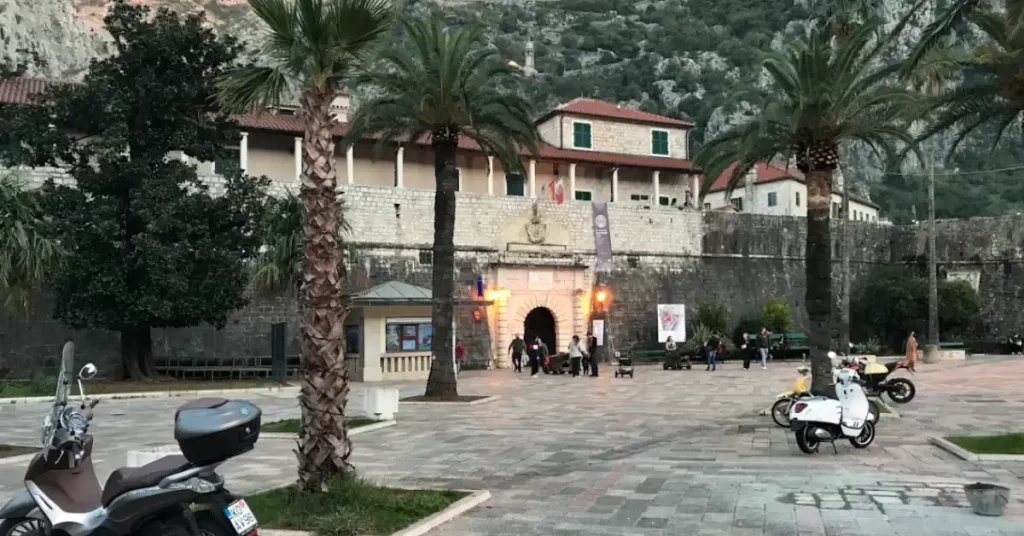
Kotor Old Town Hotels
Learn more about the best hotels in Kotor’s Old Town. There are a handful of good boutique hotels nested in centuries-old townhouses.
Events in Kotor
Visit Kotor and enjoy a rich cultural scene with many local festivals and events taking place year-round – a great escape for a few days even in the off-season. Come in February and experience the electrifying Winter Carnival, or, come in December and January for the Kotor Christmas Market and the Winter Fest.
In summer, Kotor’s event calendar is bursting with festivals like the Boka Night, and the Summer Carnival, and enough excitement to make you want to stay an extra day, or two. So don’t miss out on some of the most authentic and unforgettable experiences you will have on your trip.
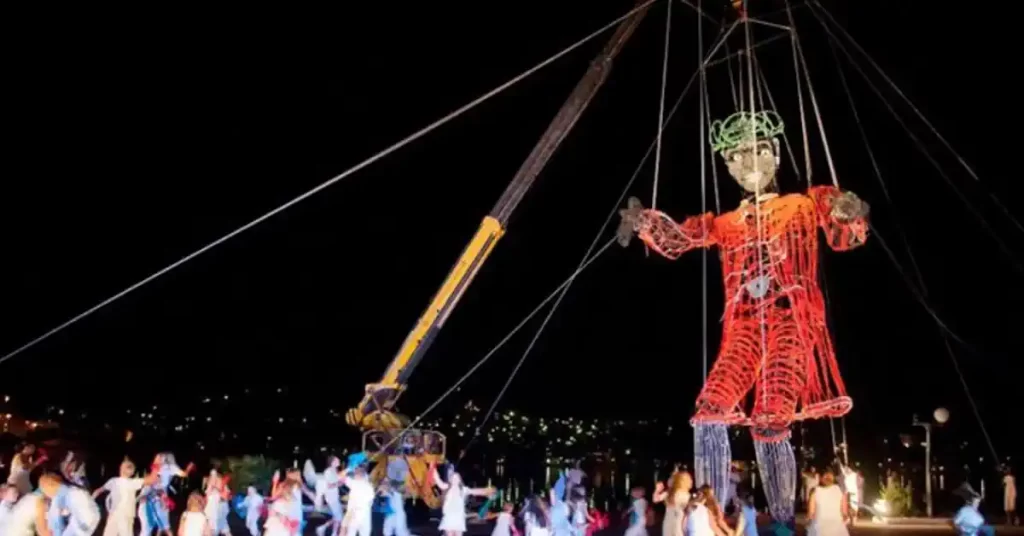
Events in Kotor
Attend one of the annual events in Kotor for a memorable adventure and learn more about the history and culture of Montenegro.
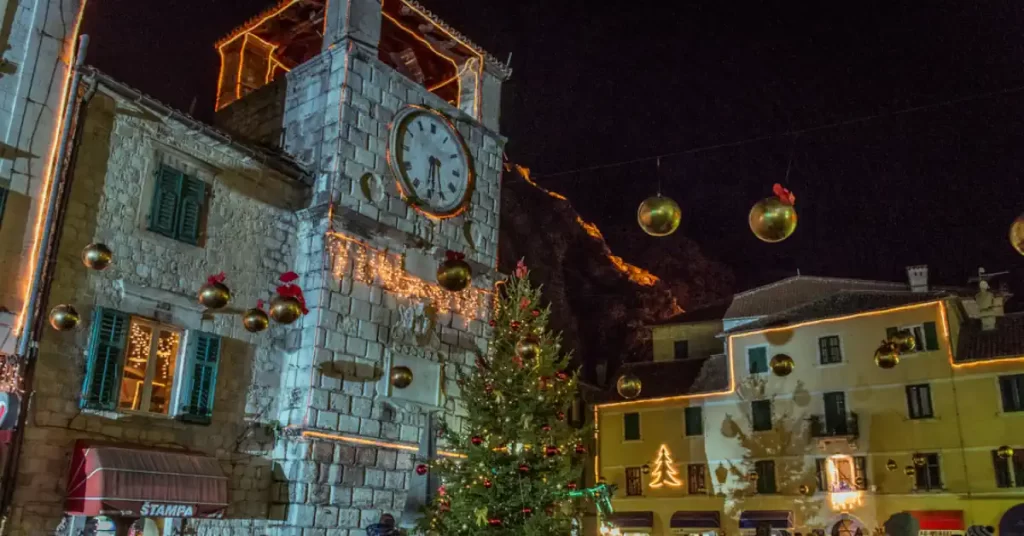
Kotor Christmas Market
While each season and event is enjoyable in its own right, the Kotor Christmas Market is full of magic and warmth.
History of Kotor
The city of Kotor was established in 168 BC by the Romans, building on the remains of an Illyrian settlement from the Iron Age. After the Roman period, it was under the rule of Byzantium and then the Serbs under the Nemanjic Dynasty. The city was conquered by the Hungarians and then the Bosnians at the end of the 14th century.
The city was renamed Kotor from Dekaderon by the Serbs. The construction of the Church of Saint Luke and the reinforcement of the city walls were completed during the reign of Vukan. In 1420, after the fall of neighboring Albania to the Ottomans, Kotor voluntarily put itself under the protection of the Venetians.
During the Venetian period, the city experienced unprecedented economic growth with the expansion of maritime trade. The maritime industry is still an important part of Kotor’s economy, and many Kotor residents work aboard international ships. Tourism is booming in Kotor which brings with it economic growth and high employment.
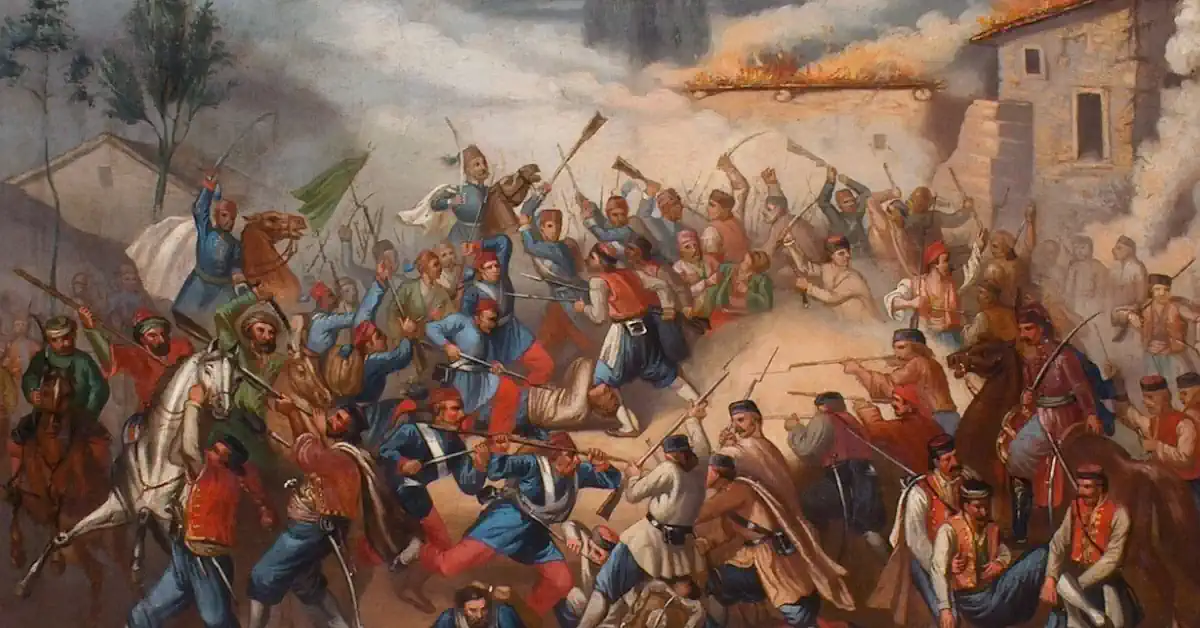
History of Kotor
Find out more about the tumultuous history of Kotor, and how it became one of the most important trading hubs in the Adriatic Sea.
Kotor’s Main Sights
Be sure to include a visit to Kotor Cathedral and the 6th-century hilltop San Giovanni Fortress (or simply: the Kotor Fortress) on your must-see list. The Fortifications of Kotor are recognized as a UNESCO World Heritage Site. The Kotor City Walls which are even lit up at night ascend for almost 300 meters before coming back down on the other side of town.
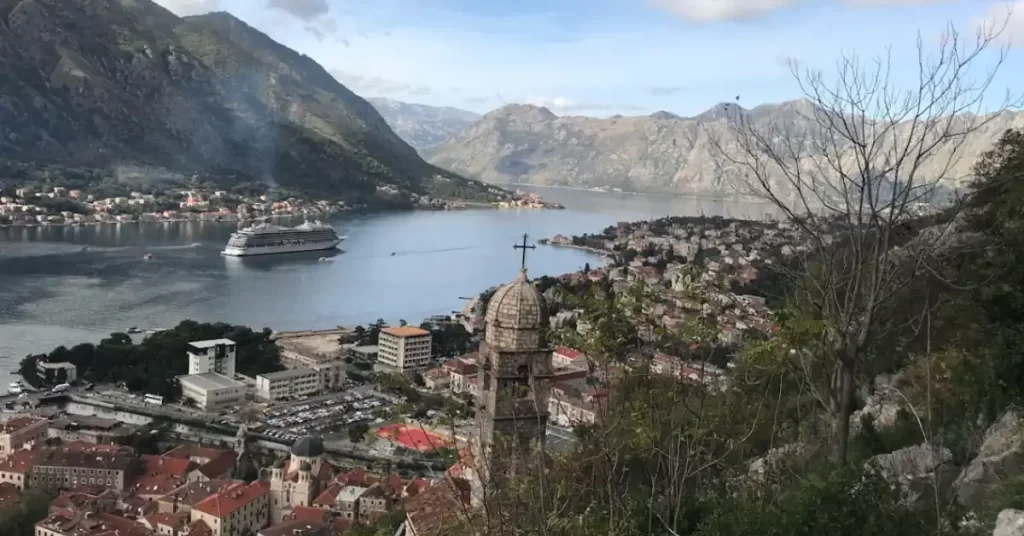
Kotor Fortress
Climb up the 1,350 steps to Kotor Fortress for one of the best views over the Bay of Kotor. Explore abandoned churches along the way.
They are fortified by a series of bastions and citadels of which the the Kampana Tower is the most prominent. You can enter the walled city through three city gates. The Sea Gate from 1555 is the main entrance point to the old town and one of Kotor’s major sights. The southern Gurdic Gate features a wooden drawbridge.
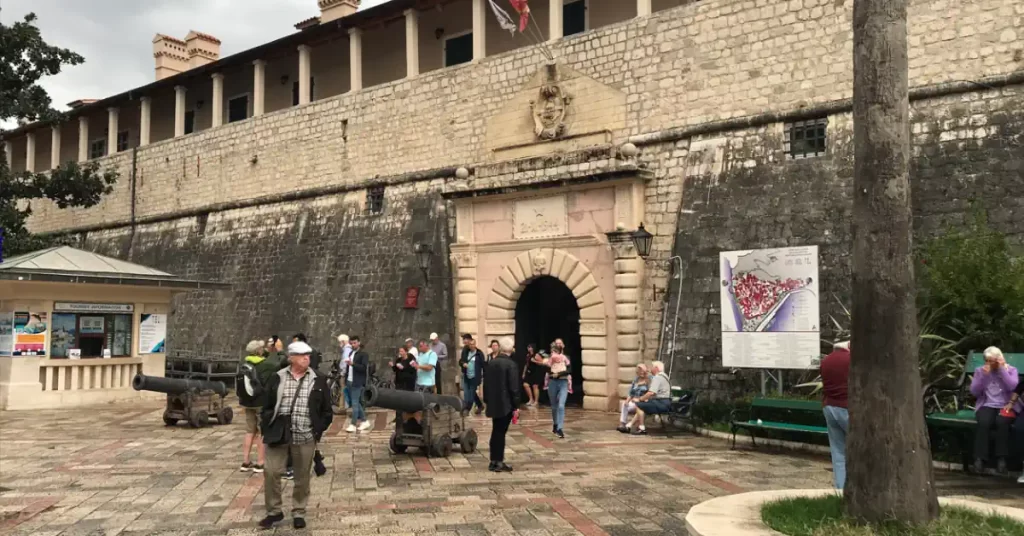
Sea Gate Kotor
Most visits to Kotor’s Old Town start at the Sea Gate, an interesting historical sight from 1555 that opens up to the Square of Arms.
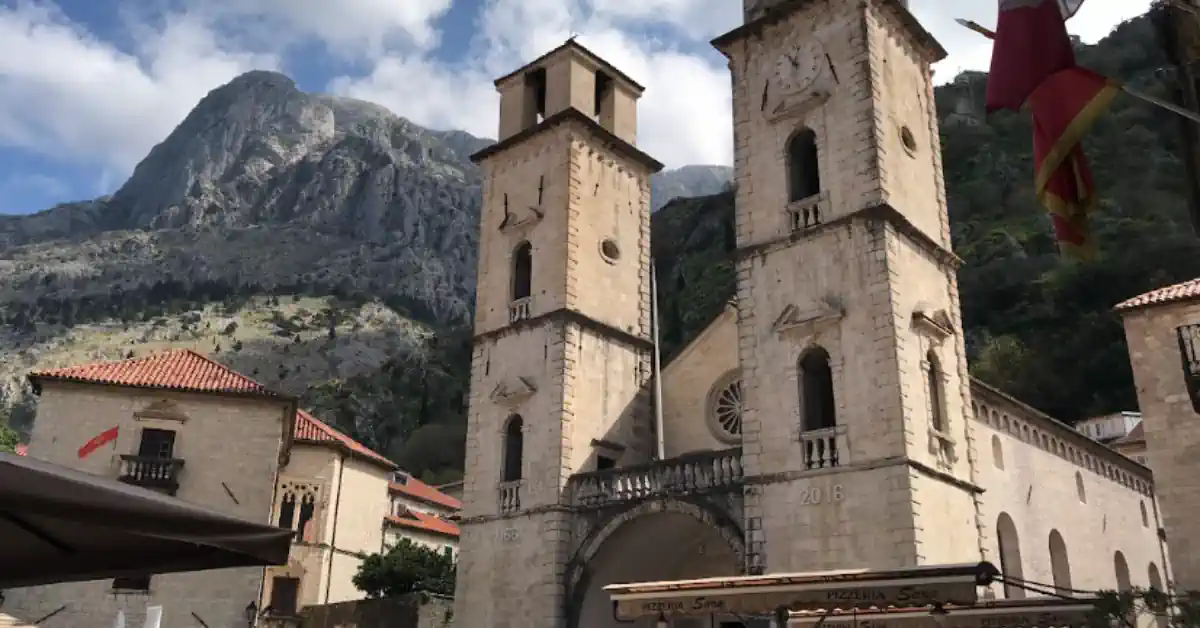
The Kotor Cathedral from 1166 is the probably most impressive building in Kotor’s Old Town, characterized by its two Baroque bell towers, one of which remains still unfinished. A small fee buys you entrance to see the beautiful Romanesque interior and some well-preserved 14th-century frescoes. There is also a small museum on the second floor.
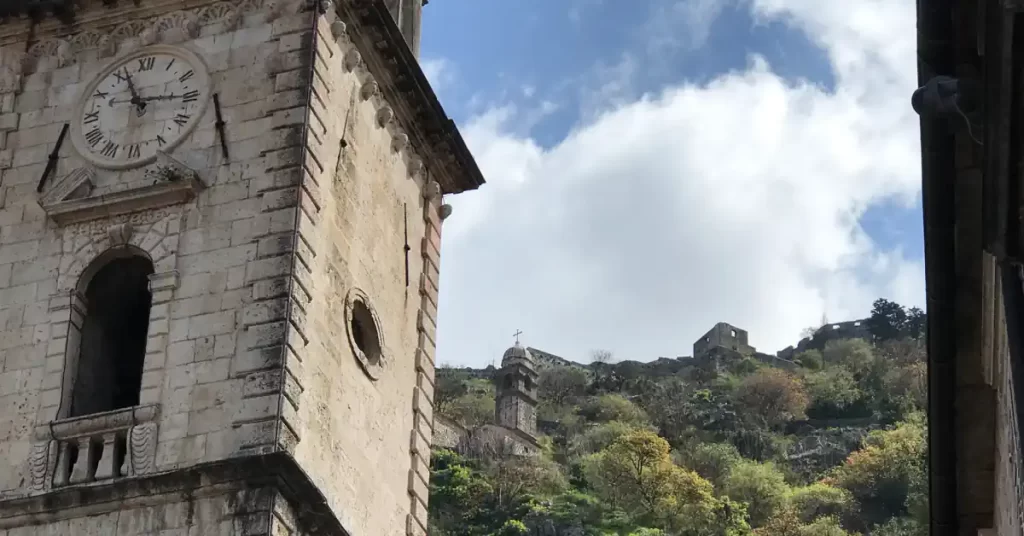
Kotor Cathedral
The most magnificent religious edifice in the Old Town is Kotor Cathedral, a masterpiece of Romanesque and Baroque architecture.
On the Square of Arms, you will find some of the town’s most notable landmarks such as the 17th-century clock tower and the Rector’s Palace. In front of the clock tower, you will find a small stone pillar, the “Pillar of Shame“, used in medieval times to publicly humiliate criminals.
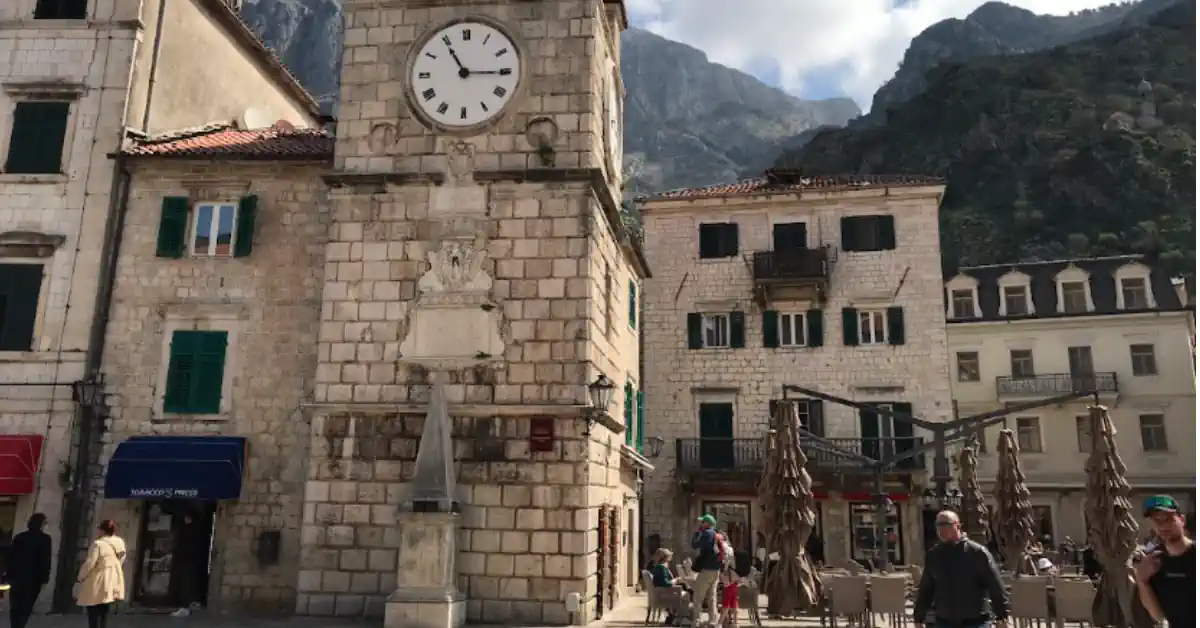
Overall, the historical center of Kotor is not that big. You can just wander around the narrow streets without a map discovering interesting buildings, churches, and squares. If you saunter long enough, you will come across the Maritime Museum and the Cat Museum which are both worthwhile visiting.
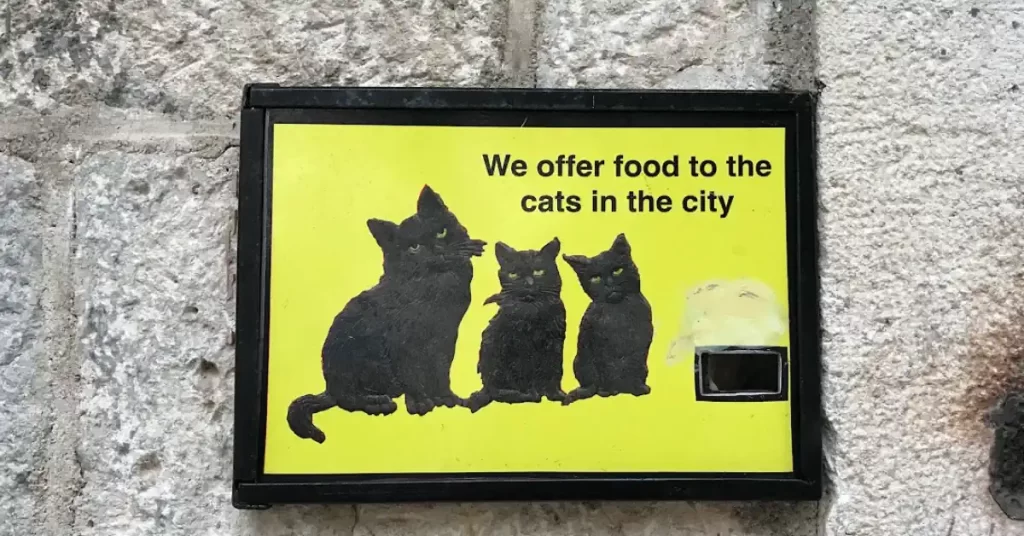
Kotor Cat Museum
Kotor is unofficially known as the city of cats. The Cat Museum in Kotor pays tribute to our feline friends who occupy every other street corner.
Kotor from Above
Find out where to go for the best views of Kotor. Capture picture-perfect views of the walled city with its beautiful orange roofs. The most iconic birds-eye view of Kotor can be enjoyed from the Kotor Fortress. The ascend is not easy but worthwhile for the breathtaking views.
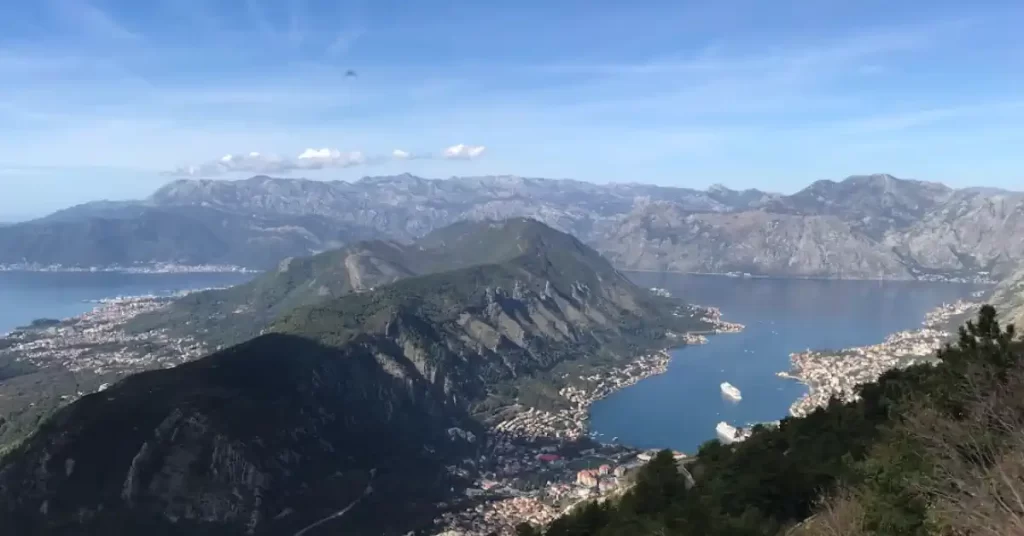
Best Views of Kotor
Kotor is stunning from many angles, read our detailed guide about where to find the absolute best views of Kotor for the perfect panoramic picture.
Kotor at a Glance
Kotor’s Old Town has a population of just 961 and almost all the sights can be reached on foot. The municipality of Kotor includes other Boka coastal towns such as Risan, Perast, and Prcanj. Kotor is located just 7 kilometers away from Tivat Airport, 87 kilometers away from Podgorica, and 70 kilometers away from the airport in Dubrovnik.
- The official currency used in Kotor is the Euro, like in the rest of Montenegro
- The timezone is CET – same as in Berlin and Paris
- The official language in Kotor is Montenegrin, very similar to Serbian and Croatian
- Supermarkets and grocery stores are open from Monday to Saturday: 08:00 – 22:00
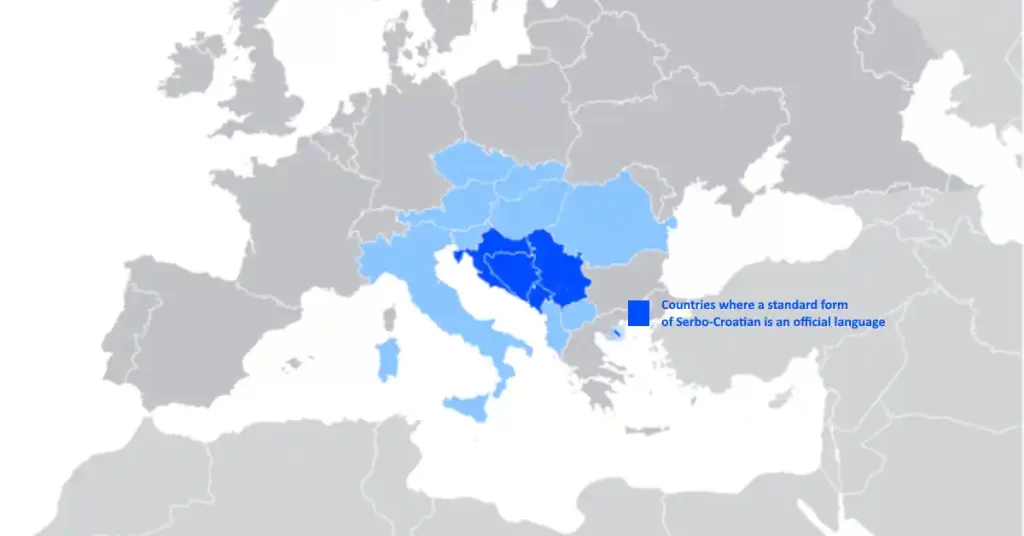
Montenegrin
Find out more about the language in Montenegro. The local dialect in Kotor is heavily influenced by Italian and Croatian.
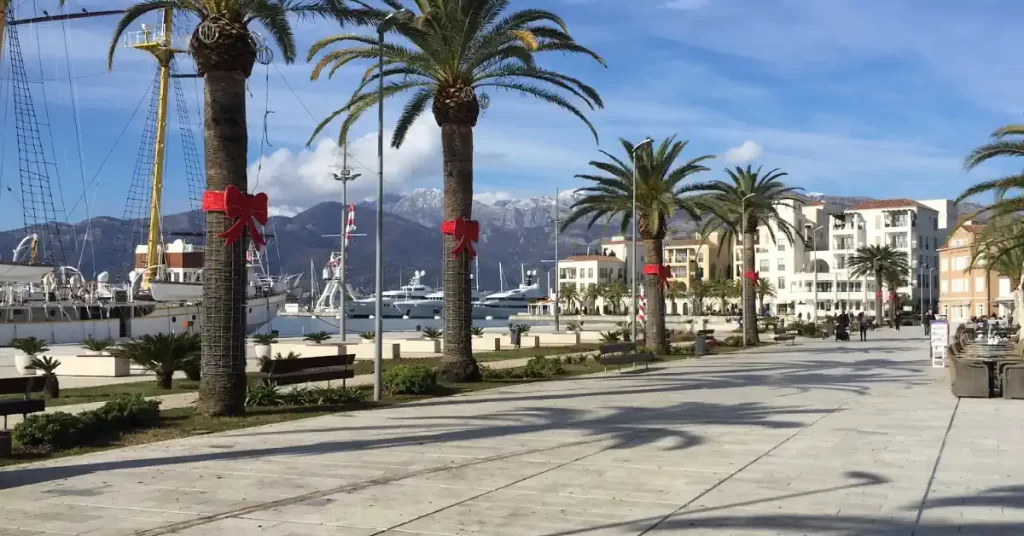
Visa to Montenegro
Find out if you can visit Kotor without a visa, or, if you will need to apply for a tourist visa before you can enjoy this beautiful city.
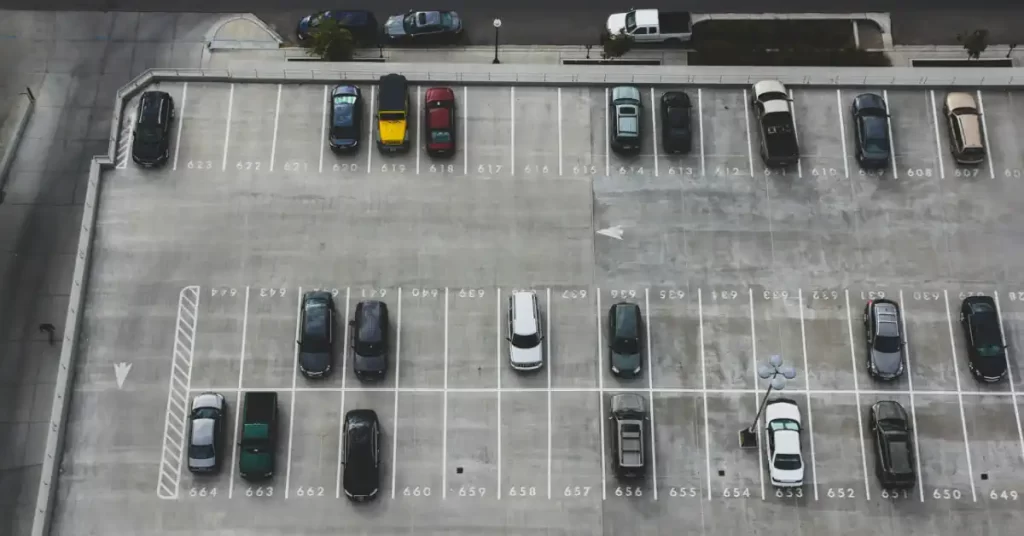
Parking in Kotor
Read our short guide about parking in Kotor to find out where to park close to the old town and how to prevent your car from being towed.
Transportation